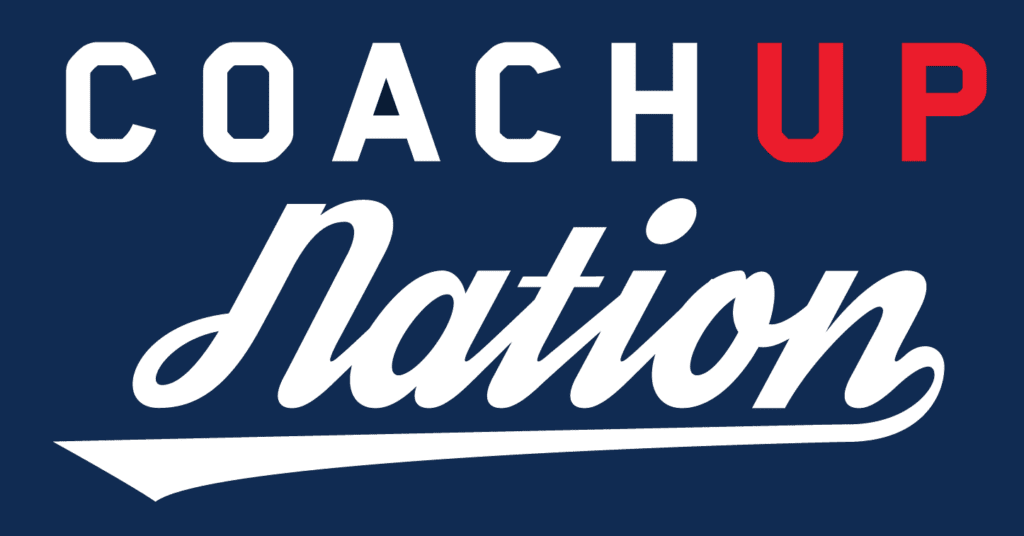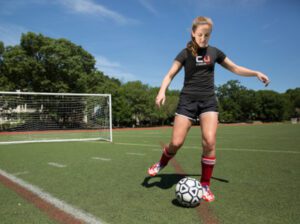Athletics are a critical component in developing a young person’s body and brain, and there are many life-long advantages to building healthy lifestyle habits in the teen years, both from a physical and mental standpoint. One of the most significant ways that a young athlete can benefit from participating in organized sports is the great opportunity it offers for increasing self-confidence.
Teenagers especially face an enormous challenge as they adapt to their changing bodies, heightened academic expectations, peer pressure, and many other sources of external stress. Feeling confident in their own self-worth and capabilities can be fleeting. It’s critical for youth coaches to understand this, and carefully consider how they can use their time with these athletes to increase their confidence, both on and off the field.
I’ve worked with many high school runners and, although every kid is different, here are a few things I’ve learned that help them get the most out of the sport:
1. Identify each athlete’s strengths and weakness to set a baseline for progress.
It’s important that you get the athlete’s perspective on what they see as their strengths and weaknesses. Then use your own observational or testing methods to develop your own opinion. It will be interesting to see if the two opinions are similar or different.
2. Set goals together so the athlete feels accountable.
It’s important that they feel committed to their goals because it’s a goal they created…not a parent and not a coach.
With new athletes, this process will often need to start with the coach outlining general performance goals for the season or session. But explain how you plan to get them there so they can begin to see how goal setting works.
3. Eliminate negative self-talk.
It’s corny, but true. I’ve often come across athletes that obsess over one thing they do not do well and are oblivious to the things they do well. Eliminate negative self talk like “I can’t”, “I never”, and the variety of excuses that they invent, by simply saying “TRY IT”. Snap them out of the cycle!
4. Address their concerns.
If an athlete is struggling or feeling self-conscious about a particular skill, give them a little extra attention and lather on the praise when they make progress. The desire to perform well in front of peers can overshadow their need for positive feedback from coach, but rest assured, they are listening to you!
5. Reflection
At the end of each session, ask your athletes to reflect on what they learned or what principles were focused on that day. I always ask 3-4 questions like, “Why did we do lunges? How will that help you run faster?” and “Which muscle groups did we work, and what makes them important for sprinters?”. This reinforces the lessons and helps the athletes recognize their progress.
6. Leadership opportunities
Allow every athlete room to practice some leadership by leading stretches at the end of practice, or evaluating their peers’ performance and giving feedback.
Over my years of coaching high school track, I’ve had many athletes completely transform over the course of a season through using positive techniques like this. It is incredibly rewarding to see their personalities unfold and their confidence increase as they learn to focus on their personal growth and gradually develop an eagerness to learn and improve their skills beyond the end of the season. As coaches, we have an important role to play in helping teens take full advantage of the opportunities organized sport can give them.
————————————-
CoachUp is the safest and easiest way to find a coach for personalized training. With our 100% money-back guarantee and vetted coaches, anyone can achieve their full athletic potential. Find your perfect coach today!
How useful was this post?
Click on a star to rate it!
Average rating 3.3 / 5. Vote count: 3
No votes so far! Be the first to rate this post.






2 Responses
Looking for a coach to help high schooler son with confidence
Looking for a coach to help high schooler son with confidence & assist with meeting goals